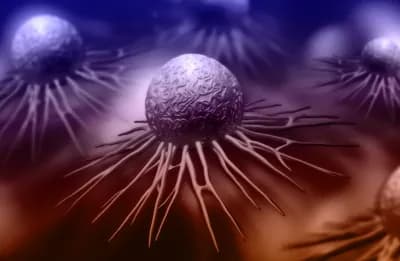There are many reasons people get cancer. These may include one’s genetic predisposition, environmental factors, and lifestyle choices. Factors that define the kind of lifestyle a person follows include food habits, physical activities and exercise, alcohol consumption, use of certain drugs, etc. There is no guaranteed way to prevent yourself from getting cancer, but there are certain steps you can take to lower your risk for many types of cancer.
The food habits an individual follows are classified as modifiable risk factors, per National Cancer Institute (at the National Institutes of Health), since by changing some of our food choices, we may reduce our risks for certain types of cancers. Eating healthy can provide your body with all the different nutrients it needs to function properly. Having the right balance of nutrients can help reduce stress on your body and boost healthy antioxidants, which help prevent DNA mutations and contribute to cancer prevention. Below are some 'cancer fighting foods' that may decrease one’s risk for cancer:
Cruciferous vegetables:
These are also called ‘super vegetables’ and include all green leafy vegetables belonging to the Brassicaceae family like cabbage, broccoli, cauliflower, bok choy, Brussel sprouts, etc. Many studies performed in Europe and America have established a positive correlation between certain chemical compounds found in cruciferous vegetables and decreased risk of colorectal and lung cancer.
Whole grains and cereals:
Apart from containing vitamins and minerals, whole grains are full of phytochemicals, some of which (like phytic acid) are noted to reduce the incidence of certain cancer types. Studies have shown that a high-fiber diet (such as due to grains and cereals) can lower the risk for colon cancer. The American Cancer Society (ACS) recommends, as one of their 10 cancer-preventive measures, including a variety of whole grains into one’s diet.
Garlic:
The National Cancer Institute identifies garlic as a substance with potential anti-cancer properties. Even though many human studies have yielded mixed results, garlic has been acknowledged to contain the ability to block the formation of cancer cells, inhibit the properties of carcinogenic substances, and enhance DNA repair by the body cells.
Tomatoes:
Tomatoes contain the antioxidant lycopene, which has demonstrated its ability in reducing the risk for prostate cancer in men. Apart from tomatoes and tomato-based products, lycopene is also found in watermelon and strawberries.
Fruits and vegetables:
Fruits and vegetables are rich in vitamins and minerals. They are low in fat, sugars, and salt, substances that are not good for the body in more than optimal amounts. They are also a good source of dietary antioxidants and fiber. A regular intake of fruits and vegetables help keep the body healthy, lowers blood cholesterol, and fights obesity, which is a very strong risk factor for certain cancer types. The ACS recommends having over 2½ cups of assorted fruits and vegetables each day, in order to reduce one’s risk for stomach and esophageal cancers.
References:
Hayes JD, Kelleher MO, Eggleston IM. The cancer chemopreventive actions of phytochemicals derived from glucosinolates. European Journal of Nutrition 2008;47 Suppl 2:73-88.
Jain MG, Hislop GT, Howe GR, Ghadirian P. Plant foods, antioxidants, and prostate cancer risk: findings from case-control studies in Canada. Nutrition and Cancer 1999;34(2):173-184.
http://www.betterhealth.vic.gov.au/bhcv2/bhcarticles.nsf/pages/Cancer_and_food (accessed on 12/02/2014)
http://www.cancer.gov/cancertopics/factsheet/prevention/garlic-and-cancer-prevention (accessed on 12/02/2014)
http://www.cancer.gov/cancertopics/prevention#Food (accessed on 12/02/2014)
http://www.cancer.gov/cancertopics/factsheet/diet/cruciferous-vegetables (accessed on 12/02/2014)
http://www.betterhealth.vic.gov.au/bhcv2/bhcarticles.nsf/pages/Fruit_and_vegetables?open (accessed on 12/02/2014)
http://www.nlm.nih.gov/medlineplus/ency/article/002096.htm (accessed on 12/02/2014)
Helpful Peer-Reviewed Medical Articles:
Kushi, L. H., Byers, T., Doyle, C., Bandera, E. V., McCullough, M., Gansler, T., ... & Thun, M. J. (2006). American Cancer Society Guidelines on Nutrition and Physical Activity for cancer prevention: reducing the risk of cancer with healthy food choices and physical activity. CA: a cancer journal for clinicians, 56(5), 254-281.
Byers, T., Nestle, M., McTiernan, A., Doyle, C., Currie‐Williams, A., Gansler, T., & Thun, M. (2002). American Cancer Society guidelines on nutrition and physical activity for cancer prevention: reducing the risk of cancer with healthy food choices and physical activity. CA: A Cancer Journal for Clinicians, 52(2), 92-119.
Bingham, S. A., Day, N. E., Luben, R., Ferrari, P., Slimani, N., Norat, T., ... & Tjϕnneland, A. (2003). Dietary fibre in food and protection against colorectal cancer in the European Prospective Investigation into Cancer and Nutrition (EPIC): an observational study. The lancet, 361(9368), 1496-1501.
Donaldson, M. S. (2004). Nutrition and cancer: a review of the evidence for an anti-cancer diet. Nutrition journal, 3(1), 1.
Kushi, L. H., Doyle, C., McCullough, M., Rock, C. L., Demark‐Wahnefried, W., Bandera, E. V., ... & Gansler, T. (2012). American Cancer Society guidelines on nutrition and physical activity for cancer prevention. CA: a cancer journal for clinicians, 62(1), 30-67.
Related Articles
Test Your Knowledge
Asked by users
Related Centers
Related Specialties
Related Physicians
Related Procedures
Related Resources
Join DoveHubs
and connect with fellow professionals


0 Comments
Please log in to post a comment.